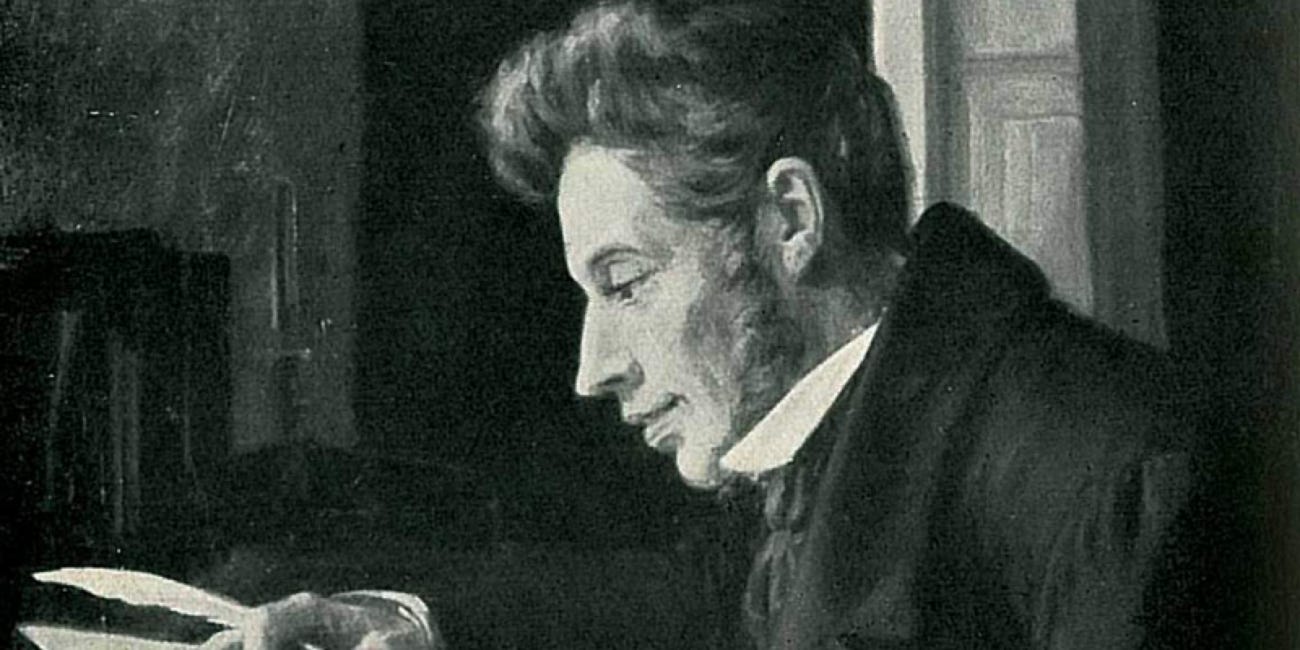Climate Anxiety and Existential Paralysis
Philosophy for the End Times of Søren Kierkegaard
The intersection of environmental crises and existential philosophy is a growing field of concern, particularly through the lens of Søren Kierkegaard's thoughts on anxiety and authenticity. Climate anxiety—a psychological response characterized by feelings of helplessness and dread regarding environmental degradation—has gained prominence as individuals grapple with the overwhelming challenges posed by climate change.
This phenomenon is particularly notable among vulnerable populations, who experience compounded socio-economic and ecological pressures, leading to increased emotional distress and existential concerns about the future.
Kierkegaard, a foundational figure in existential thought, provides crucial insights into the nature of anxiety, positing that it can serve as a catalyst for personal transformation and authentic decision-making. His philosophy encourages individuals to confront their anxieties rather than retreat from them, viewing these feelings as opportunities for self-discovery amidst existential uncertainty. This perspective is increasingly relevant today as climate anxiety is recognized not just as a psychological issue but as a profound existential challenge that calls for a re-evaluation of individual agency.
Furthermore, Kierkegaard’s concept of existential paralysis—a state of inaction stemming from overwhelming anxiety—resonates with the feelings of hopelessness many experience. This paralysis can hinder effective engagement with environmental issues, making it vital for individuals to cultivate a sense of purpose and responsibility. By embracing their anxieties and recognizing the interconnectedness of personal and collective experiences, individuals can foster resilience and transform despair into proactive engagement.
Ultimately, the philosophical framework offered by Kierkegaard serves as a vital foundation for understanding climate anxiety and existential paralysis. It emphasizes the importance of personal reflection and ethical engagement, suggesting that acknowledging our fears can lead to meaningful action against the climate crisis.
Historical Context
The Roots of Climate Anxiety
The notion of climate anxiety finds its origins in a broader historical narrative that intertwines human perception of nature with existential thought. The ecological crisis that emerged in the 19th century can be traced back to a philosophical schism between technological instrumentalism and a more intrinsic human understanding of the natural environment. This split has fostered a disconnection from nature, leading to feelings of anxiety and helplessness.
Kierkegaard's Influence
Søren Kierkegaard, a pivotal figure in existential philosophy, contributed significantly to the understanding of anxiety. He posited that anxiety is not merely a negative emotion but can serve as a catalyst for authentic living, urging individuals to confront their fears and make conscious choices in the face of uncertainty. This perspective resonates deeply within contemporary discussions on climate anxiety, as individuals seek to assert their agency and responsibility.
Intersecting Philosophical Narratives
The intersection of climate anxiety with existentialist philosophy emphasizes individual freedom and the weight of personal choice. Kierkegaard's exploration of anxiety highlights the need to engage with change rather than viewing it as an abstract entity. This engagement necessitates a deep examination of one's relationship with environmental crises, framing it not just as a psychological issue but as a profound existential challenge.
Cultural and Societal Responses
The historical context of climate anxiety also reveals how socio-cultural factors shape individual experiences of existential dread. Vulnerable populations, such as Indigenous communities, often bear the brunt of environmental degradation, amplifying their feelings of anxiety. Furthermore, media narratives significantly influence public perception and emotional responses, highlighting the need for community engagement and activism to foster resilience.
Key Concepts
The Embodiment of Thought
A central theme in Kierkegaard's philosophy is the embodiment of thought, which suggests that our understanding is not merely intellectual but deeply rooted in our human condition. In his work "Fragments," he argues that understanding is vital for our subjective experience, marking the intersection between thought and being. This raises questions about the limits of human cognition and the challenges inherent in existence.
Transcendence and Immanence
Kierkegaard's dialectics explores the relationship between transcendence and immanence, reframing them not as separate realms but as interrelated aspects of the human experience. The transcendence of thought encapsulates what we cannot fully comprehend, while immanence refers to our lived experiences. This duality suggests that the struggle for understanding is deeply embedded in the human condition.
The Dialectics of the Limit
Kierkegaard introduces the idea of the "dialectics of the limit" as a framework for understanding the boundaries of human existence. This approach posits that the limits we encounter are not merely obstacles but essential aspects of the human experience. Reflecting on these limits enables us to confront the existential challenges that define our lives, encouraging a deeper engagement with our identity and purpose.
Temporality and Existence
The theme of temporality is critical in Kierkegaard’s discussions. He argues that human beings are a synthesis of the temporal and the eternal, meaning our existence unfolds within a temporal framework that influences our self-conception and actions. Our awareness of time profoundly impacts our sense of identity and the choices we make in confronting existential anxiety.
Subjectivity and Transformation
Another key aspect of Kierkegaard's philosophy is the relationship between subjectivity and transformation. He asserts that our understanding of ourselves is profoundly influenced by how we engage with our surroundings and the perceptions of others. This interplay shapes our identities and can lead to profound personal transformation, particularly when we embrace our anxieties as opportunities for authentic self-discovery and growth.
Existential Thinking
Kierkegaard’s approach to existential thinking seeks to clarify what it means to exist, emphasizing that our conditions demand thoughtful engagement with the dilemmas we face. By foregrounding the enigmatic nature of human existence, he invites a reflection on the meaning of life itself.
The unexamined life is not worth living.
Socrates
This existential inquiry is not merely theoretical; it is a call to actively confront our circumstances and to articulate our understanding of existence amidst the complexities of life.




